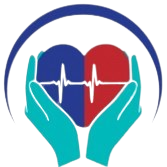Recognizing the symptoms of cardiovascular diseases is crucial for early detection and timely intervention. In this blog, we will shed light on the common symptoms that may indicate underlying heart conditions. Being aware of these silent killers can help save lives and promote better heart health.
Chest Pain or Discomfort: One of the most common symptoms of heart disease is chest pain or discomfort. It may feel like pressure, tightness, or squeezing in the chest area. If you experience persistent or recurrent chest pain, seek medical attention immediately.
Shortness of Breath: Shortness of breath, especially during physical activity or even at rest, can be a sign of heart disease. If you find yourself getting winded easily or struggling to catch your breath, consult a healthcare professional.
Fatigue and Weakness: Feeling excessively tired, weak, or fatigued, even with minimal exertion, may indicate an underlying heart problem. If you experience persistent exhaustion, it’s important to have your heart health evaluated.
Dizziness and Lightheadedness: Frequent episodes of dizziness or lightheadedness, particularly when standing up or exerting yourself, can be warning signs of cardiovascular issues. It is essential to investigate the cause and seek medical advice.
Heart Palpitations: Irregular heartbeats or palpitations, where you feel your heart racing, skipping beats, or fluttering, should not be ignored. Consult a healthcare professional to determine if further evaluation is necessary.
Swelling in the Legs, Ankles, or Feet: Unexplained swelling in the lower extremities may indicate an underlying heart condition. If you notice persistent swelling, it is advisable to consult with a healthcare provider.
Fainting or Loss of Consciousness: Experiencing fainting spells or sudden loss of consciousness may be a sign of an underlying heart problem. Seek immediate medical attention if this occurs.
Rapid Weight Gain: Unexplained and rapid weight gain, especially accompanied by swelling in the legs and ankles, may indicate fluid retention due to heart failure. Contact a healthcare professional to evaluate the cause.
Nausea and Digestive Issues: Although less common, some individuals with heart disease may experience symptoms such as nausea, indigestion, or abdominal discomfort. If you notice these symptoms, it’s essential to consult a healthcare provider for proper evaluation.
Jaw, Neck, or Shoulder Pain: In some cases, heart-related pain may radiate to the jaw, neck, or shoulder area. If you experience discomfort in these regions, particularly in conjunction with other symptoms, seek immediate medical attention.
Conclusion:
Understanding and recognizing the common symptoms of cardiovascular diseases is crucial for prompt diagnosis and effective treatment. If you experience any of these symptoms or have concerns about your heart health, do not hesitate to consult with a healthcare professional. Remember, early detection can save lives and improve outcomes. Stay vigilant and prioritize your heart health.




